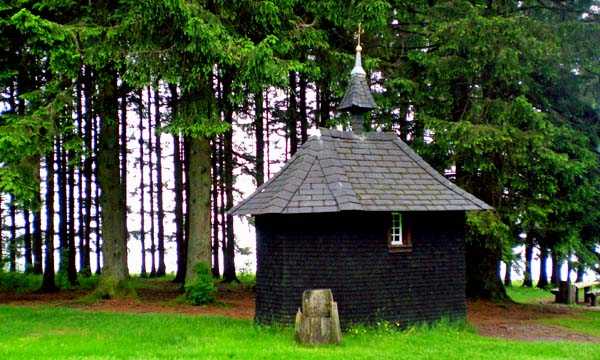9. What an atheist knows and believes
---------------------------------------
Previous - Next - Contents
As I open a new book today, "The Universe, a Biography" by John
Gribbin, my eye falls on the dedication page which carries a quote from
Bertand Russell, the very philosopher I quoted yesterday.
Here it is :
It is not what the man of science believes that distinguishes him,
but how and why he believes it. His beliefs are tentative, not dogmatic; they are based on evidence, not on authority or
intuition.
Bertand Russell (1872-1970) |
I find this a very intelligent and accurate definition of what my belief
has evolved to over the years.
My belief has always changed with my
increasing awareness and therefore always has been and remains
"tentative".
 As a teenager I progressed from being a Christian to a vague non formal
belief,
and for many years it remained at least partly "intuitive", as I believed in
a rather undefined someone and in a vague hereafter, which gradually
gravitated towards agnosticism.
As a teenager I progressed from being a Christian to a vague non formal
belief,
and for many years it remained at least partly "intuitive", as I believed in
a rather undefined someone and in a vague hereafter, which gradually
gravitated towards agnosticism.
The last few years
however as I approached and crossed the 70 years mark (feeling nearer to my
"exit", and starting to think more seriously about my belief), "intuition"
too has fallen away (I think).
I am now what you would call and atheist. An atheist by
definition does not believe in a God, but he does (and I certainly do)
believe in some things.
Well, what do I believe in ? Here are the main points, but bear in
mind that as human being one can not possibly grasp the real truth which
clearly goes beyond our mental framework of space and time. Therefore what
I (or anyone else) believes in is at best only a unique individual
virtual reality within which we place ourselves.
| I believe that :
|
1.
Our Universe was triggered off by something rather than by
someone (like a God).
I concur with the modern
philosophical stand point which considers it inconceivable that a superior
being would created something inferior to himself. (Also this so called
first cause question is in principle unsolvable. For who created God,
and who created the God who created God, etc. ?)
|
2.
The evolution of our Universe represents an evolution of
energy.
The raw energy released by the Big Bang has over the lifetime of our
Universe gradually evolved into energies of ever higher and higher complexity. First
elements of gradually more complex nature were formed by the stars,
clustering together and forming planets like our earth.
Then slowly
chemical processes evolved into primitive life forms, which in turn during
an ages long process of evolution became more complex and eventually arrived
at us human beings with an ever growing awareness of the world and Universe
around us.
I think of this process as something evolving
into someone. Where I consider the "someone" not as a single
entity but as a composite totality (perhaps representing a composite
consciousness) of all life on earth and in the Universe.
|
3.
The human species is merely a stepping stone in the evolution
process not a final destination.
We are undoubtedly at the cutting edge of the evolution process here on earth, but
this process is continuing and will do so for another 5 billion years or so.
Whether the human species will survive that long depends on how well we will
be able to adapt to evolving environments and unforeseen events affecting
our earth.
Contemporary studies of our DNA makeup also clearly
show that we are in essence a lucky accident and not a predetermined
design by a higher authority.
|
4.
The human life and spirit are finite and there is no
hereafter.
I agree with Brian Greene (in his "The Fabric of the Cosmos") that
our entire being, including mind emotions and spirit, are generated and
sustained by our physical existence. They therefore all cease to exist at
the moment we die. Consequently there is no hereafter.
Also the observable
life pattern of all living things, plants, animals, humans appears to be
consistent for all : birth - growth (and procreation)
- decline - death.
The belief in a hereafter is (in my opinion) in
part a remedy for our fear of death and in part wishful
thinking of being at least in spirit immortal.
|
5.
Time is not like a flowing river, but like a frozen block of
ice.
This is something we of course can not imagine, but is clearly what Einstein's
space time concept reveals to us. This means that each and every
moment of our life is in fact permanent, a permanent time slice of the ice
block which visualises space time. And in this sense, although we are
finite, our actions remain forever (immortalised) as a permanent
record.
I have always considered my life as a painting, a work of
art, and have largely been guided in my actions and decisions by this very
concept. It also fits in well with the space time scenario. The
creation of a painting (by the artist) has a beginning and (when considered
finished) an end. But the painting itself lives on forever.
|
Next Page -
Top of Page
Copyright © 2010 Michael Furstner
|
